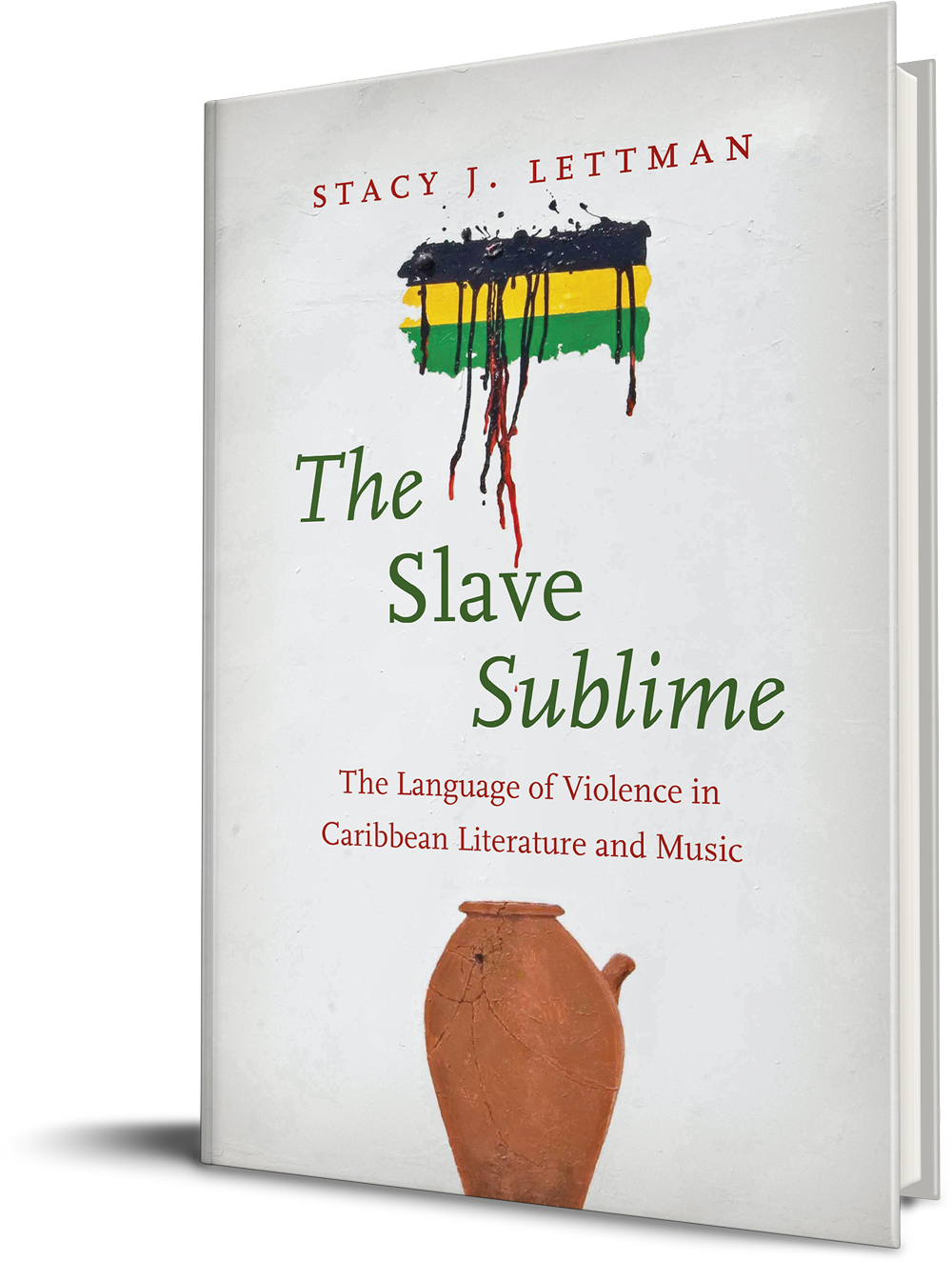Congrats to Prof. Stacy Lettman on publication of The Slave Sublime: The Language of Violence in Caribbean Literature
Congratulations to Professor Stacy Lettman on publication of her monograph, The Slave Sublime The Language of Violence in Caribbean Literature and Music (University of North Carolina Press, June 2022).
According to the book page for The Slave Sublime at UNC Press:
In this interdisciplinary work, Stacy J. Lettman explores real and imagined violence as depicted in Caribbean and Jamaican text and music, how that violence repeats itself in both art and in the actions of the state, and what that means for Caribbean cultural identity. Jamaica is known for having one of the highest per capita murder rates in the world, a fact that Lettman links to remnants of the plantation era—namely the economic dispossession and structural violence that still haunt the island. Lettman contends that the impact of colonial violence is so embedded in the language of Jamaican literature and music that violence has become a separate language itself, one that paradoxically can offer cultural modes of resistance. Lettman codifies Paul Gilroy’s concept of the “slave sublime” as a remix of Kantian philosophy through a Caribbean lens to take a broad view of Jamaica, the Caribbean, and their political and literary history that challenges Eurocentric ideas of slavery, Blackness, and resistance.
Living at the intersection of philosophy, literary and musical analysis, and postcolonial theory, this book sheds new light on the lingering ghosts of the plantation and slavery in the Caribbean.
And some early reviews are in:
An exciting and highly engaging book that explores literary, philosophical, and musical works in order to challenge the Western tradition’s assumptions about slaves, slavery, freedom, and the sublime. In particular, Lettman’s examination of the political languages of violence in the modern Caribbean and their aesthetic manifestations is probing, illuminating, and provocative. Go and read this book!
~ Neil Roberts, Williams College
This is an exceptional work of scholarship, rich with insightful and delightful readings of Caribbean poetry, Jamaican fiction, and reggae and dancehall music. Its depth and breadth are remarkable. Given Jamaica’s notoriety in the top ranks of lists of the world’s most violent countries and the ongoing debates about violence in its popular music cultures as the possible source of its outsize violence, this book’s topic, arguments, and readings are timely and of signal importance in properly contextualizing contemporary phenomena and shifting the discourse inside and outside Jamaica.
~ Njelle Hamilton, University of Virginia
